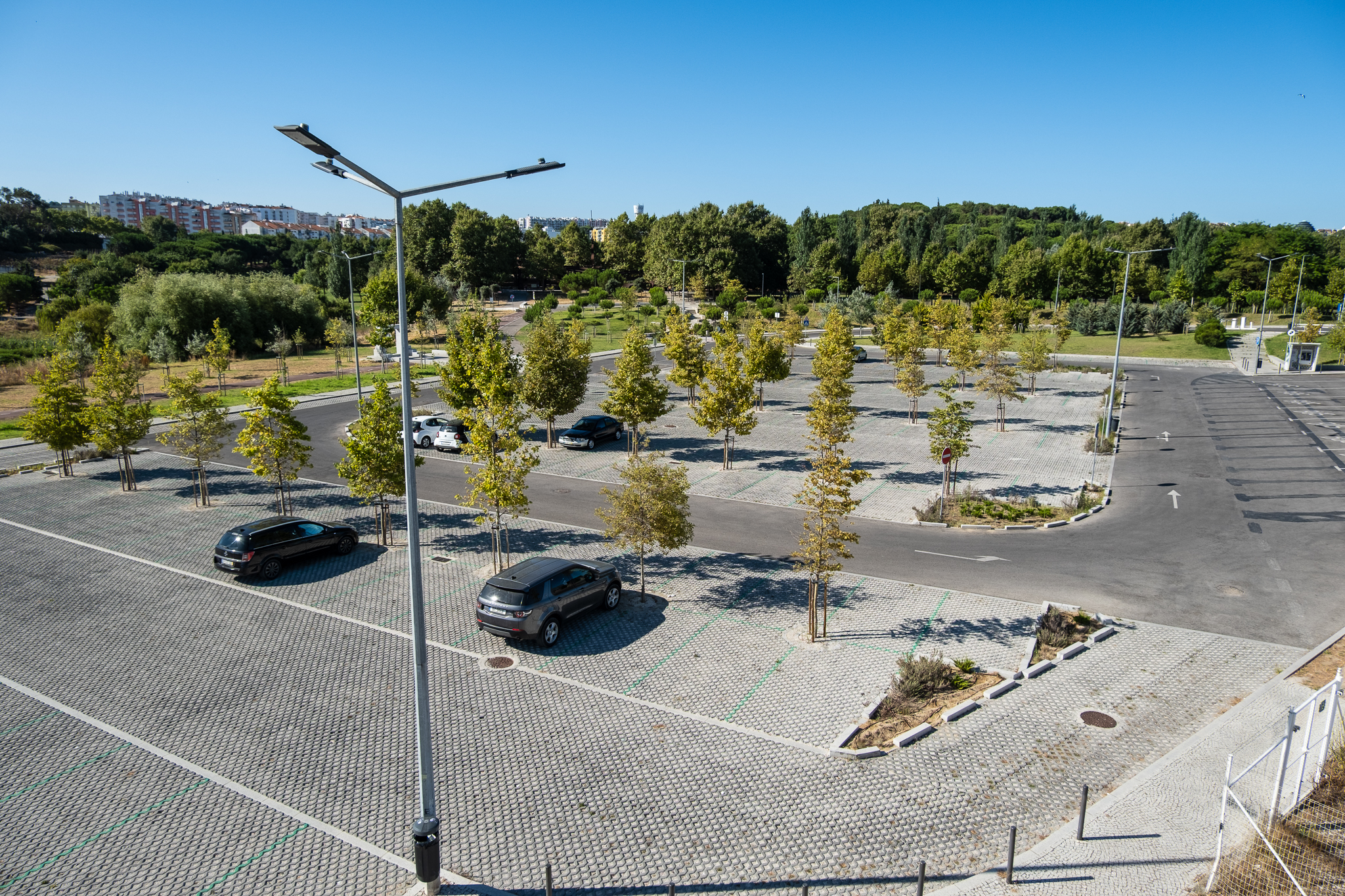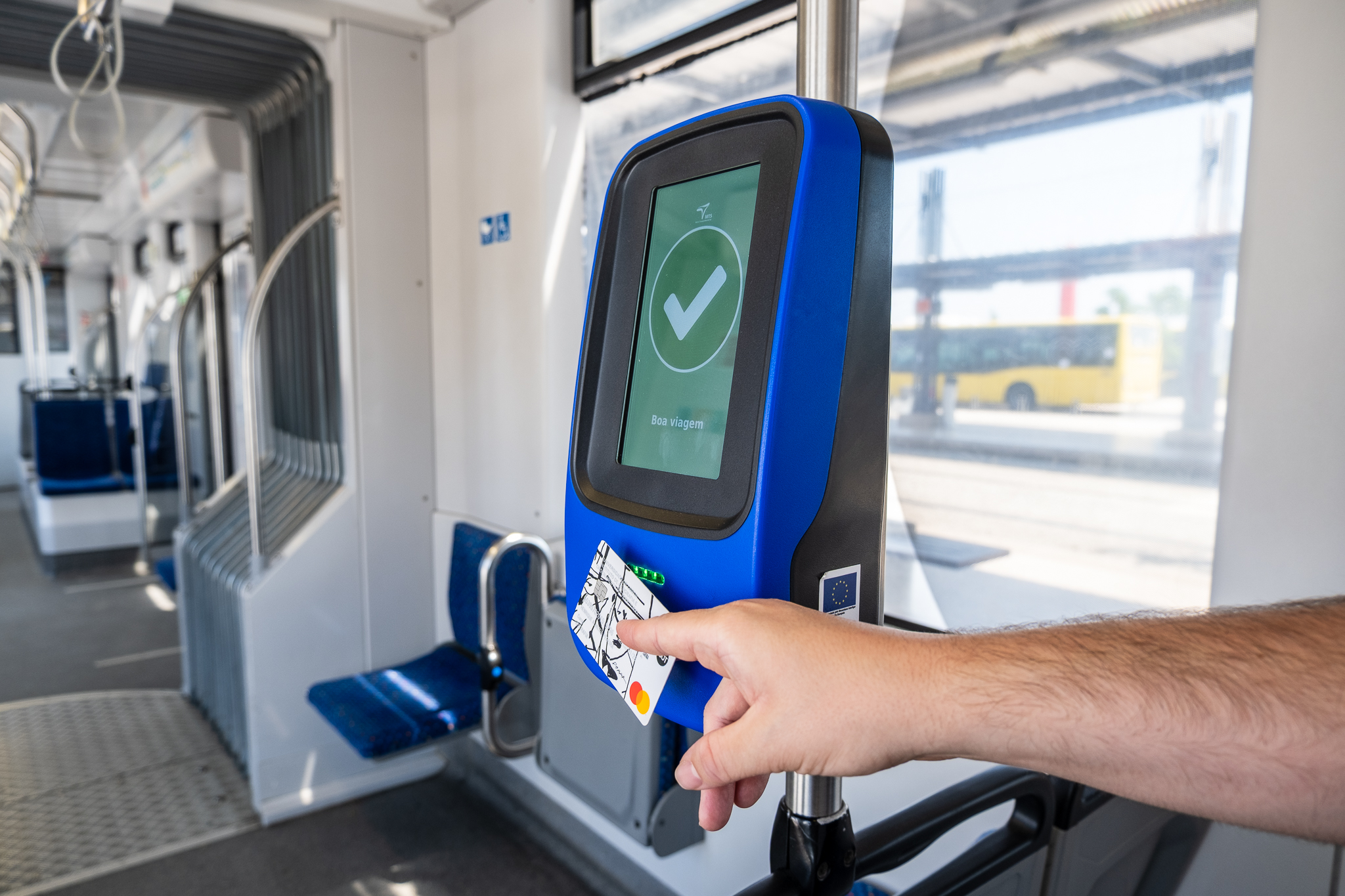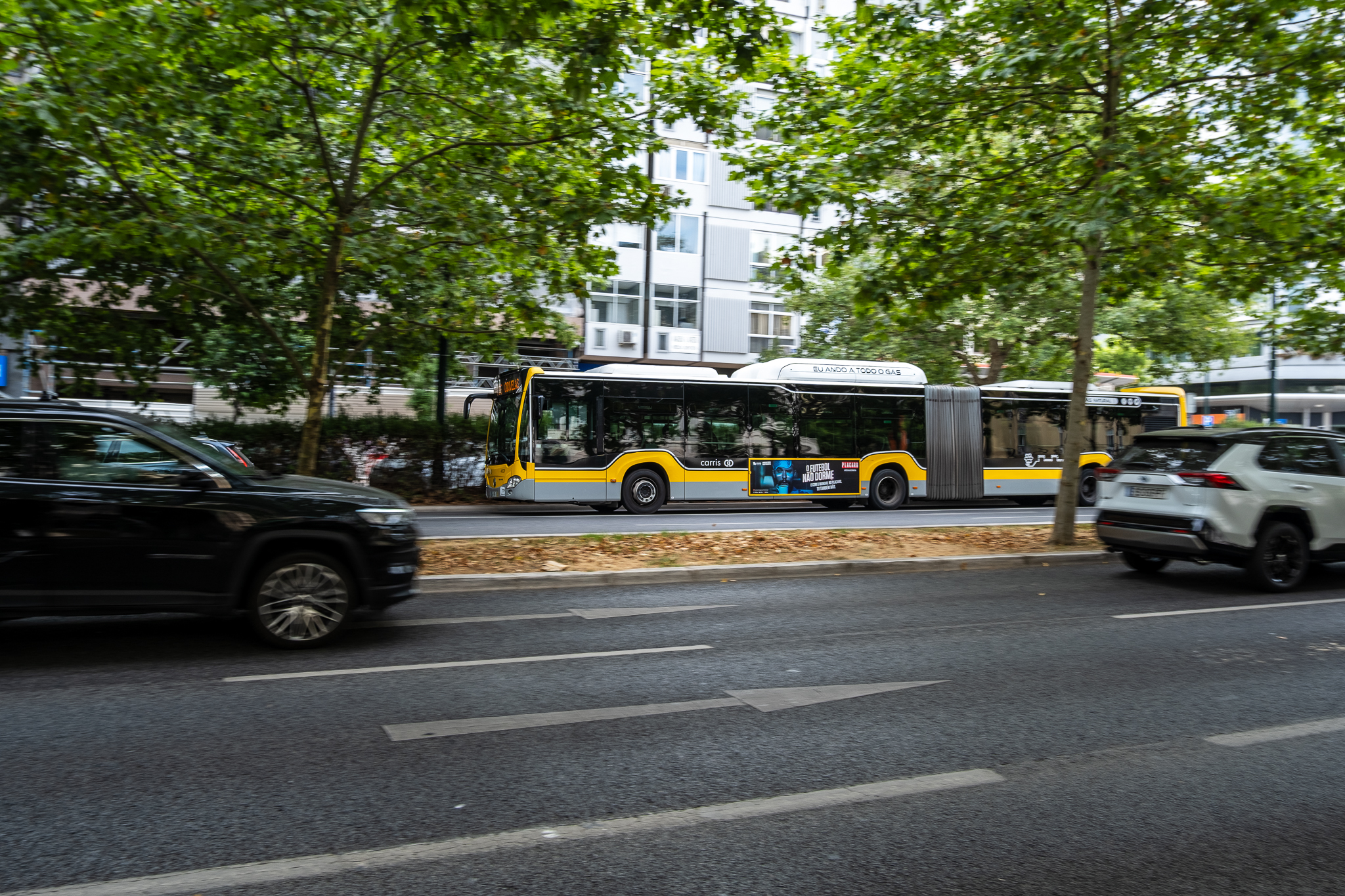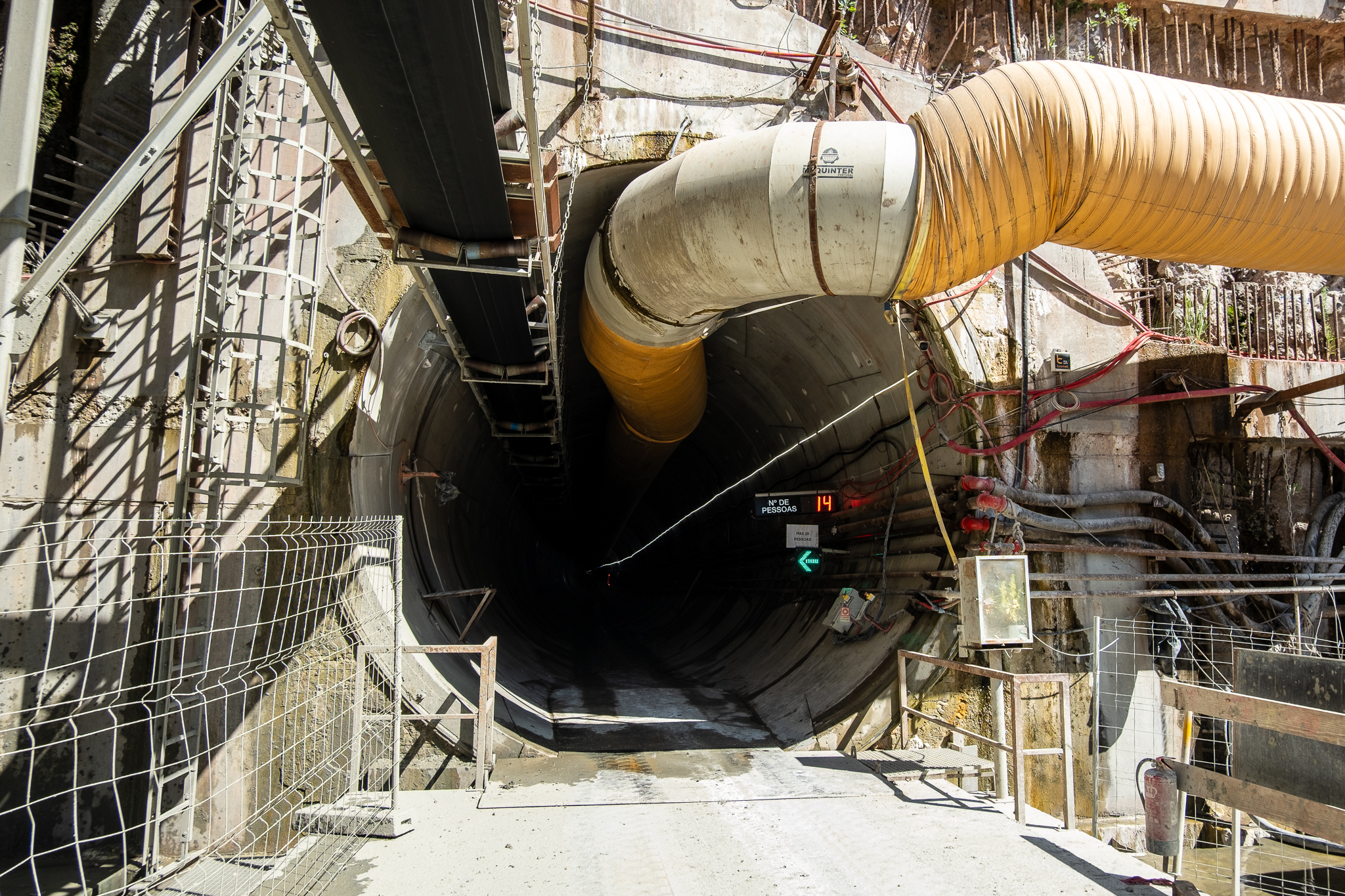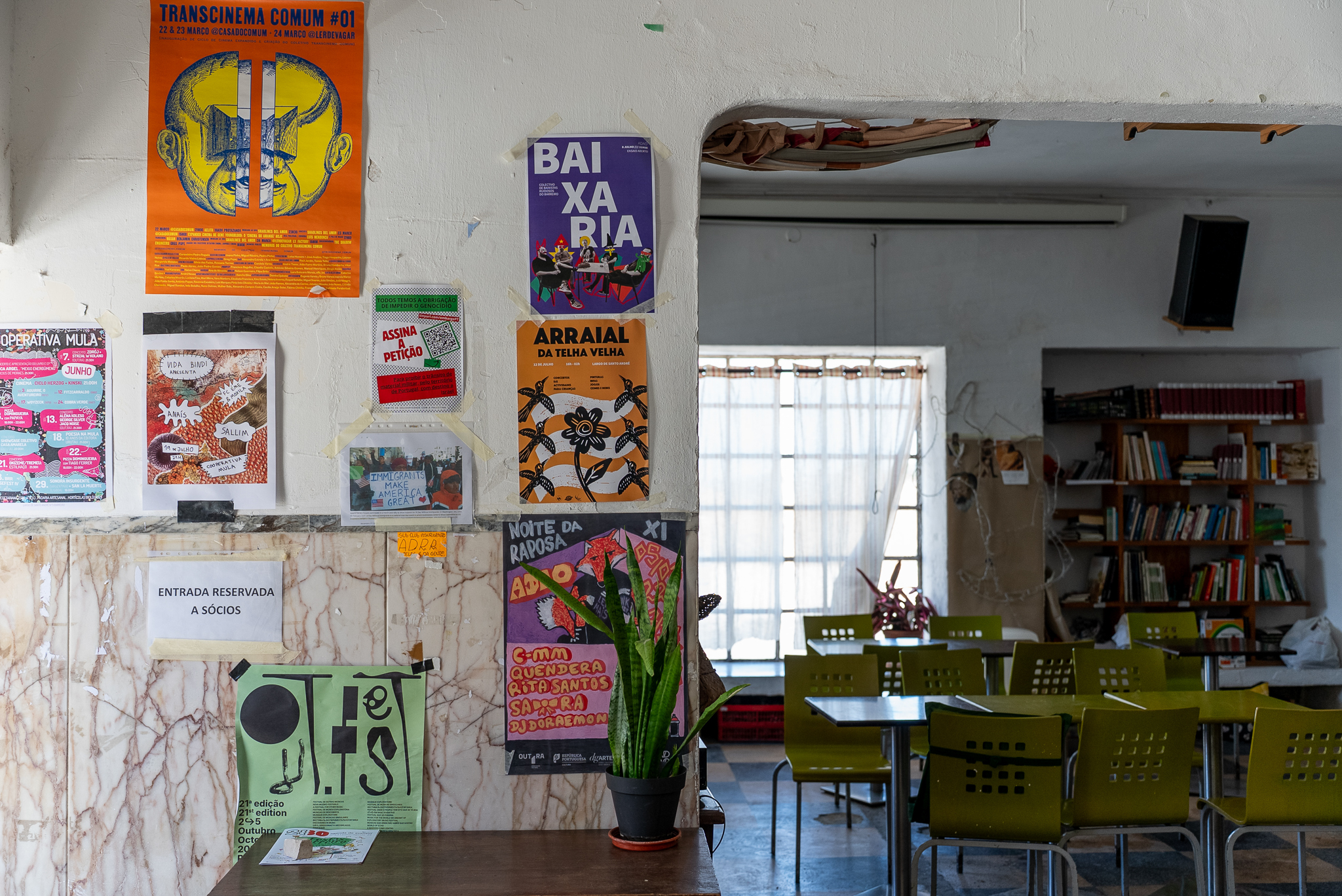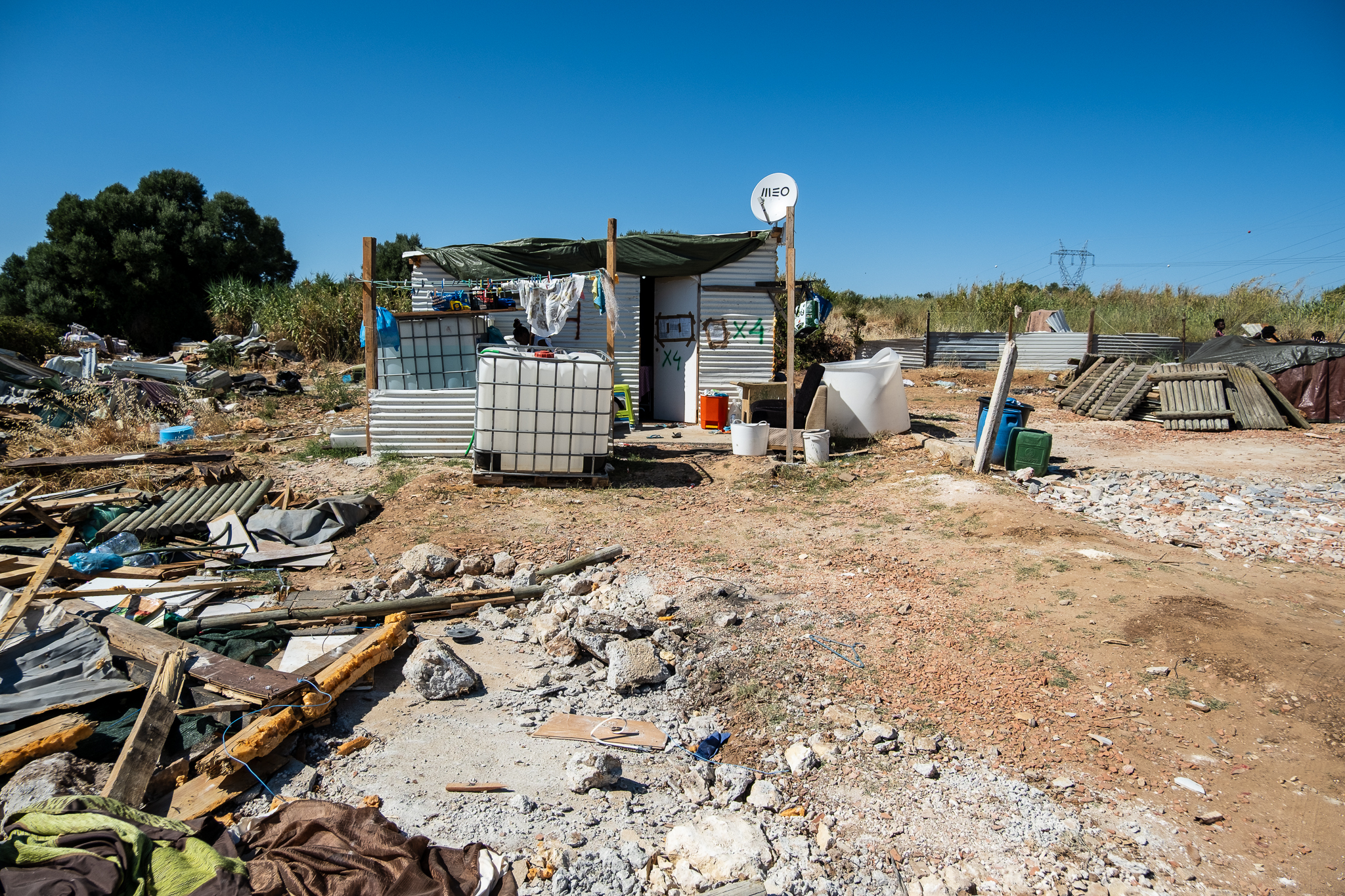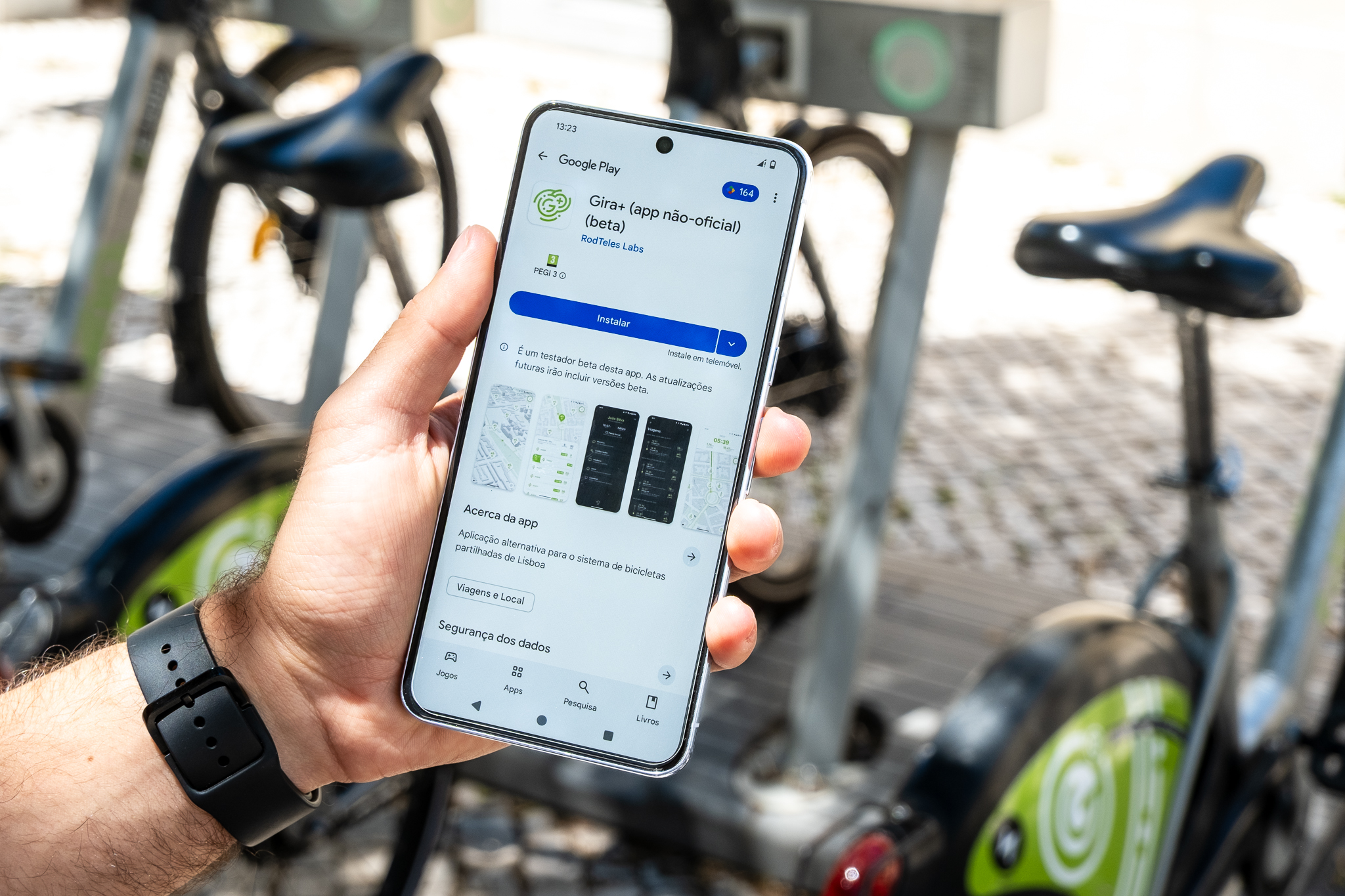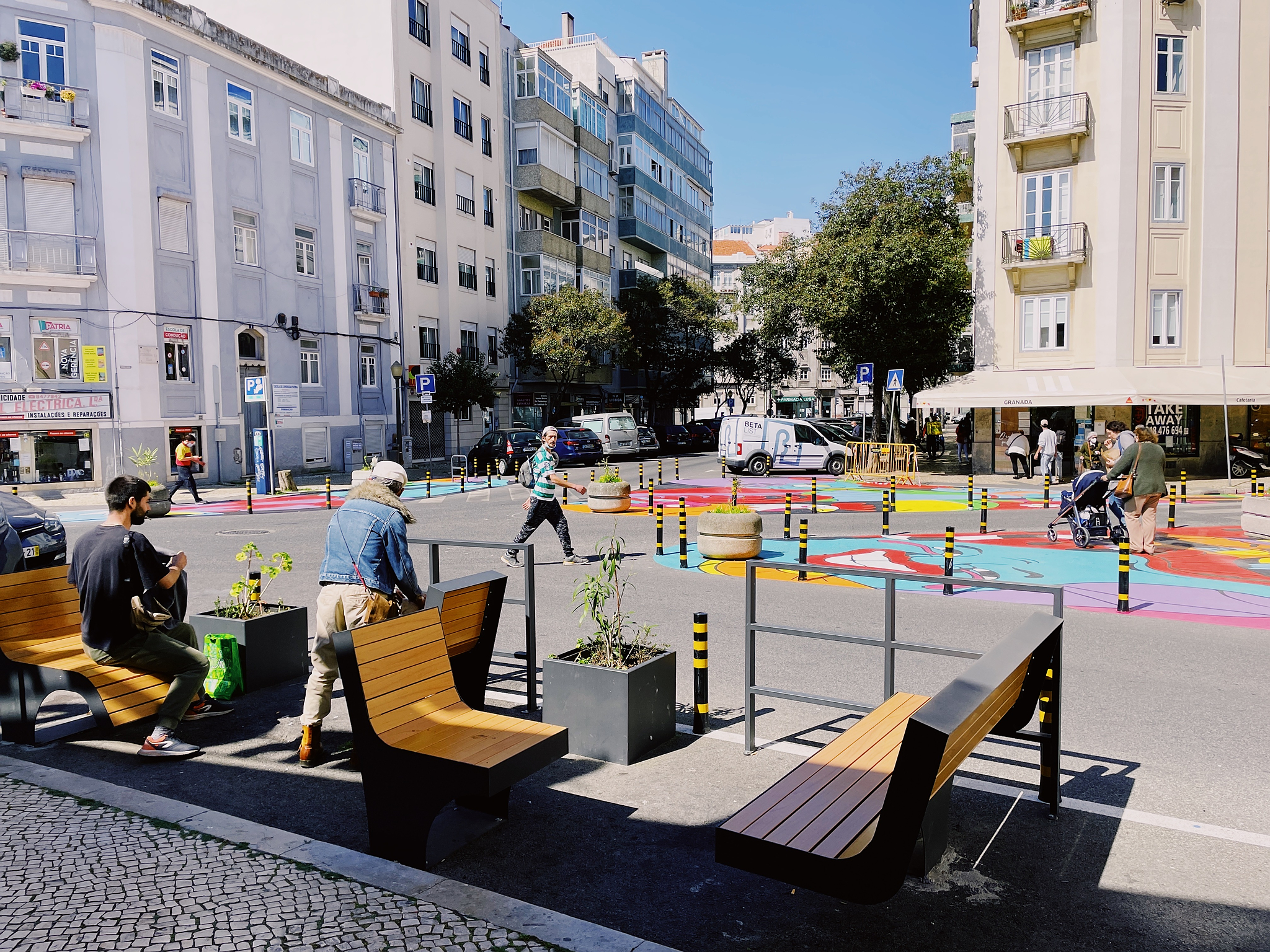
The pandemic has led to an increase in Lisbon's esplanades. Free of taxes at least until the end of this year and with support for licensing, several restaurants have chosen to expand or create terraces at the door, often at the expense of pedestrian space. With the deconfinement allowing in a first phase only the profitability of outdoor spaces and with the rules of distance between tables, the establishments ended up occupying more sidewalk than they would normally occupy.
When walking along Avenida Duque d'Ávila, where we have always found esplanades, you can see that some of these now practically reach the bike lane, pushing pedestrians into this bike lane. In other parts of the city where a "terrace culture" did not exist before, terraces have been popping up on sidewalks that are already not very wide, in an "every man for himself" battle between homeowners looking to get their businesses back on track, customers eager to get out of their homes, and pedestrians encountering new obstacles to getting around.
But it's not all bad news. Since the beginning of the pandemic, several parking spaces have been exchanged for esplanade spaces, avoiding the obstruction of the limited sidewalk space. What some people see as "more theft of spaces from the residents," others see as a way to put at the service of the public the space that someone would use to park his or her private car. Ana Pereira, co-founder of the Bicicultura cooperative, imagines parking spaces beyond their usefulness in the service of restaurants and, therefore, is launching the project sParqs.
sParqs is a non-profit initiative that aims to promote the creation of parklets in the city of Lisbon. Parklets are parking spaces reconverted into public space at the service of the people. "The terraces are a positive thing directly for the businesses that use them, but also for the surroundings of the street, since there are more people on the street and that creates an objective and subjective security"explains Ana Pereira to Lisboa Para Pessoas. "But they are private spaces, which cannot be used as you use a public park, for example. They are mainly owned by cafes and restaurants, serving for eating and drinking, and are only available during the opening hours of these establishments."
The idea behind the parklets is that of micro-spaces for meeting and fruitionsParqs is a space from which local businesses (not necessarily in the restaurant business) can benefit and which at the same time are public spaces, being open at any time of the day and accessible to anyone - even if they are not consuming. With the motto "parking people, not just cars", sParqs wants to involve merchants and the general population in the dissemination of parklets through the city of Lisbon.
On the sParqs side is the design of the parklets tailored to each local business, help with its licensing with the municipality, and setting up the result on site. In the end, all the parklets developed by sParqs can be part of an online mapped network, allowing people to discover the parklets that are scattered around the city and enjoy the local commerce. Bicicultura, through its sub-brand sParqs, can also promote cultural events and other activities that bring together the different parklets and the different businesses, be they cafes, bookstores, or others.
For now, thanks to funding from the Environmental Fund and a partnership with the street furniture manufacturer Veco Urban Designseven are planned parklets: two already installed around the Arroios Market, four will be placed in Campolide (two on Avenida Columbano Bordalo Pinheiro and two on Rua General Taborda), and one will go to Beato in front of the NOW cowork space, which is the headquarters of Bicicultura. These first seven parklets serve as a showcase for what sParqs intends to create from now on.
The trend of parklets has emerged in cities such as San Francisco, São Paulo e Viennawhich have created specific programs to allow the conversion of parking spaces into resting, staying, and meeting areas on the streets - making them more pleasant for walking and cycling, promoting good neighborliness, improving street safety and providing car traffic calming, expanding the area available for trees, flowers, and shrubs, and bringing economic value to surrounding local businesses.
Ana Pereira still doesn't know if the positive results (including for merchants) that have been seen abroad will also occur in Lisbon, but she is confident that they will, believing that the creation of parklets can help the economic recovery of local businesses and, at the same time, promote a modal transition from the car to walking, biking, and public transportation, and giving small rectangles of public space back to the people. "An important part of promoting a modal transition from the car to other modes is reducing parking"mentions. "We want to reduce parking but not leave the space with nothing. We want to take one thing away and leave something better there for everyone, not just the owners of the cars that park there.".
Ana understands the frustration of people who see small corners or wide sidewalks where cars are used to parking only to be blocked with bollards. "A lot of times there is a big empty space left there, with just sidewalk. It's easy for people to feel that they've taken something away but not gained something. You have to take away but put what's missing there."Such as trees, flowers, shrubs, benches, tables, and other street furniture. "Parklets may be a better measure than simply preventing parking."
The reception of parklets at Arroios Market will have been positive, especially by the younger shopkeepers, according to a survey carried out orally on the spot and mentioned by Ana to Lisboa Para Pessoas. Shopkeepers who want sParqs' help can contact the project team at parklets@bicicultura.org or through the site.

